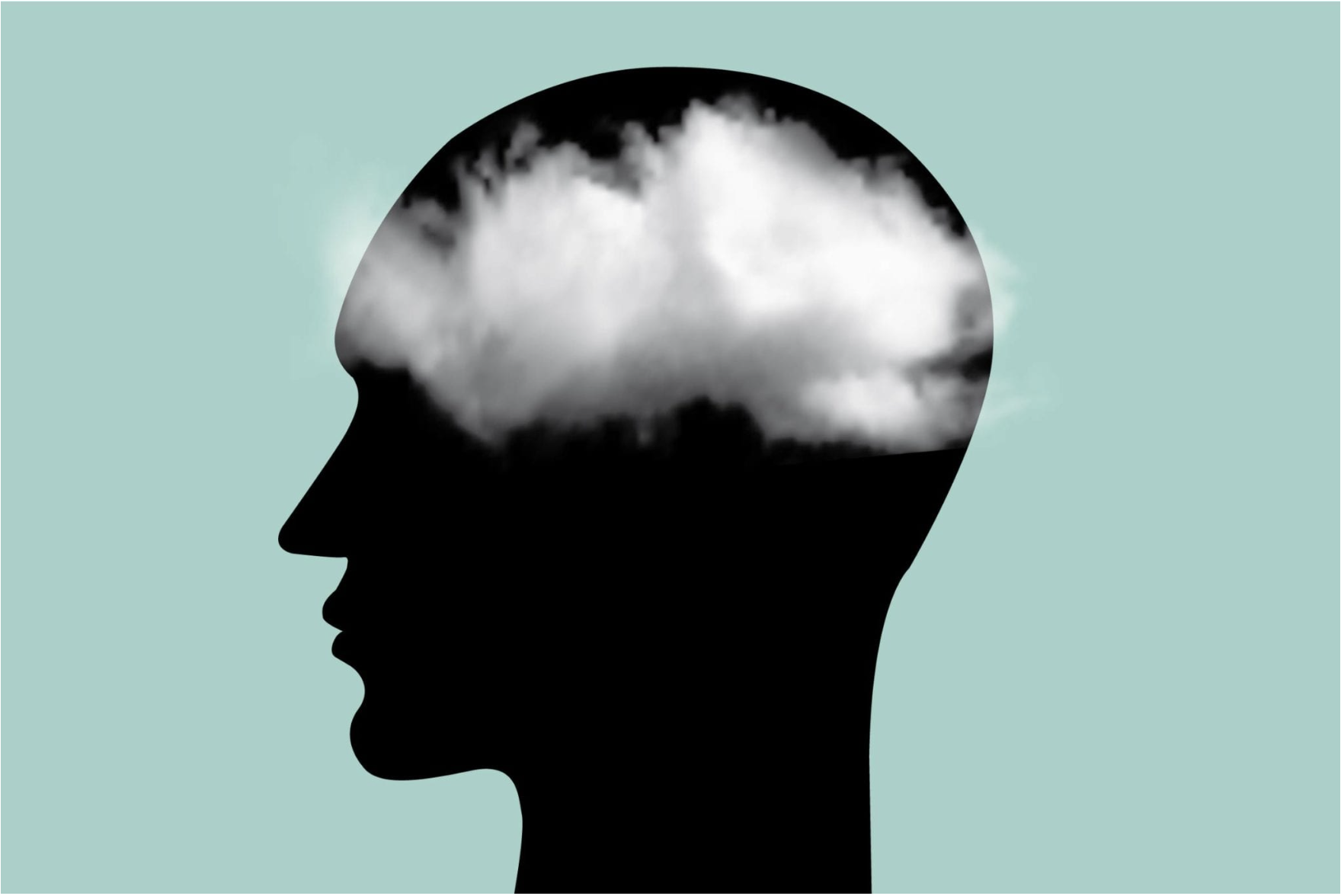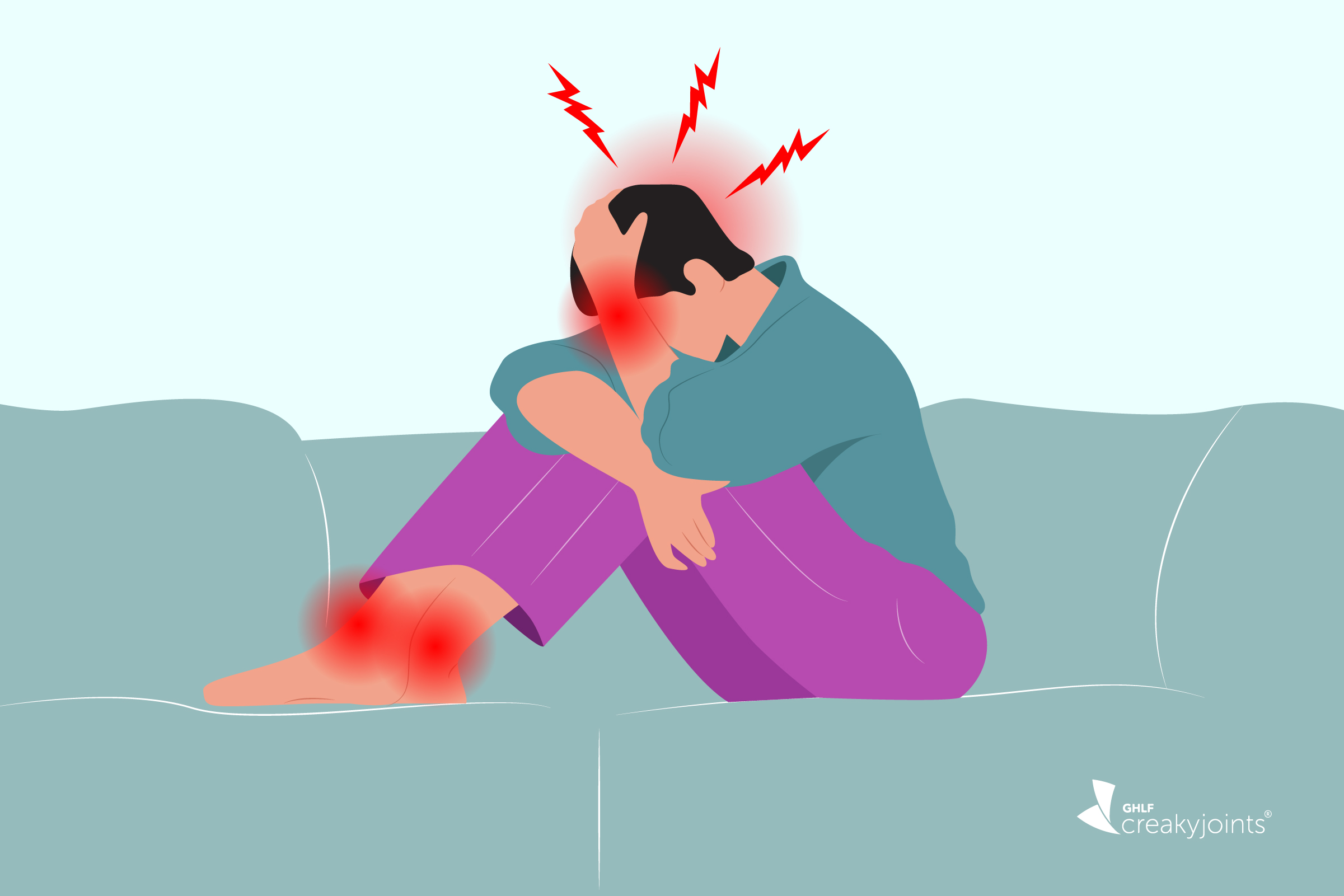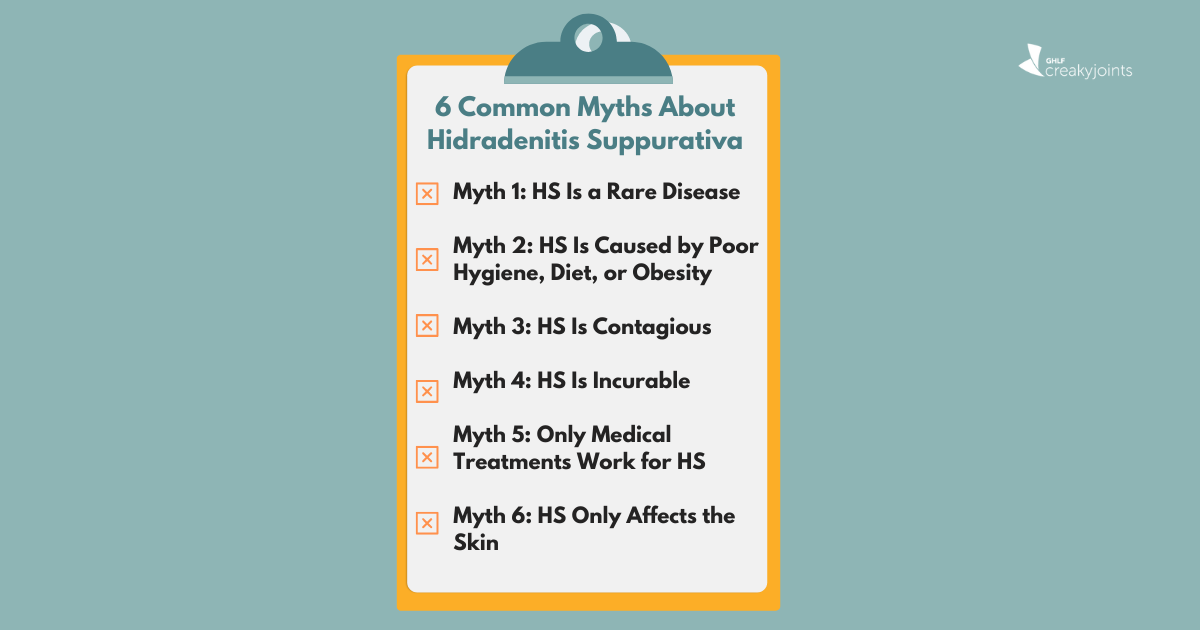It can feel isolating when you face pushback or lack of knowledge from providers, but know that you’re not alone in advocating for your best care.
ChronicHue: Bringing Mental Health Support to the BIPOC Chronic Illness Community
ChronicHue provides a much-needed virtual platform for BIPOC patients to share experiences and receive support for better mental health.
May 20, 2024
Sarah Shaw
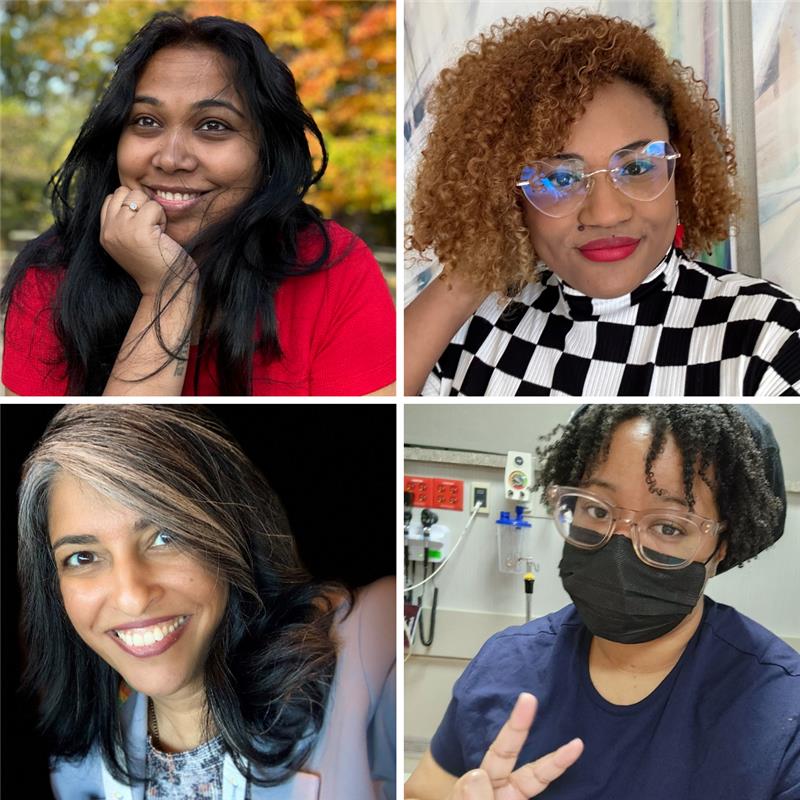
With May being Mental Health Awareness Month, it’s important to focus on the mental well-being of all patients and recognize that more needs to be done to address historical traumas, societal stigmas, and systemic inequalities faced by the Black, Indigenous, and People of Color (BIPOC) patient community. Racism and implicit bias in health care contribute to health care disparities for BIPOC patients.
Addressing these gaps and increasing diagnosis and treatment for BIPOC communities was a key focus in the creation of ChronicHue in the fall of 2023.
What Is ChronicHue?
ChronicHue is a global online community empowering melanated people living with chronic illness and disability. Meeting monthly, it provides a forum for discussing topics that combine chronic illness, culture, and navigating the world as BIPOC patients. ChronicHue provides a supportive space for BIPOC folks to connect with others who can share and understand their racial or cultural experiences.
ChronicHue was created out of necessity. Eight years ago, when I became involved in patient advocacy, I was excited to find a community of people who also lived with chronic illness. When I shared my experiences with migraine, endometriosis, or mental health, I suddenly didn’t have to over explain like I did with my able-bodied friends, family, or coworkers. They just understood, and having that support was a fantastic feeling. But while the larger chronic illness community was great, there were still things missing, and at times, I felt out of place as a Black & Queer chronic illness patient advocate.
Here are a few things that I and other BIPOC patients have noticed that led to the creation of ChronicHue:
- The lack of diversity at patient- and health-centered events, clinical trials, chronic illness organizations, and online support groups.
- The high numbers of BIPOC patients getting delayed diagnosis, dealing with micro or macroaggressions in health care, and, unfortunately, losing some lives along the way.
The third thing I’ve struggled to talk about but is incredibly important to highlight. A personal article I wrote about my chronic illness journey received racist and homophobic comments, which took a toll on me mentally. Reaching out to other BIPOC folks in the community, I found similar things happened to them, some even worse. They said it made them turn away from engaging in online chronic illness groups.
Racist comments and attacks in some online chronic illness spaces when highlighting health care disparities within BIPOC communities or highlighting Black or Brown patients’ lived experiences is still a significant issue we have to deal with as a society. This won’t be solved overnight.
We must work together to dismantle that. One way is by having spaces like ChronicHue to build trust, increase BIPOC patient engagement, share educational resources related to chronic illness, and take our learnings to improve access to care for all patients.
To understand what this group means to BIPOC patients, we asked some members to share how these monthly virtual meetings help them cope.
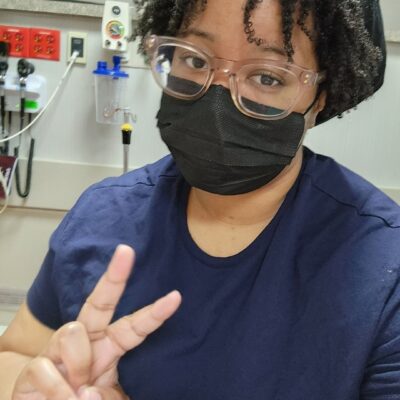
Veronica
Veronica was diagnosed with chronic asthma at birth, chronic migraine in 2005, congestive heart failure after an infection, and pneumonia from COVID. She also has spinal stenosis and long-COVID symptoms.
How does ChronicHue help you?
“Chronic illness support groups are lifesaving, affirming, and therapeutic. They provide individuals with a place to feel seen, heard, and safe while surrounded by their peers. With this specific group, I am surrounded by individuals who understand the visible/invisible layer of also being a person of color navigating the complexities of chronic illnesses. This includes finding doctors who see you as a patient in need, not someone exaggerating or drug-seeking, often a thought for individuals of color, especially women of color.”
Why are groups like this important?
“Support groups provide me with a lifeline by being able to speak to others going through the same experience. Having others who I can confide in, be vulnerable with, and grieve with about the loss of certain parts of my future is a kindness I cannot articulate.”

Neha
Neha was diagnosed with asthma in adulthood, chronic migraine in 2013, and pain disorder with related psychological factors in
How does ChronicHue help you?
“Finding a sense of belonging was important to me. I did not want to feel marginalized. As a woman of color with chronic illness, I found myself feeling misunderstood and unsupported in other groups. It was not until I came across ChronicHue that I finally found a space where my need for support was met [without] dealing with racial microaggressions and marginalization.”
Why are groups like this important?
“I was on the verge of giving up on finding any sort of support group and even told my pain psychologist it is not going to happen for me because everything I do makes my health situation worse. The moment I showed up to the first virtual meeting, I knew I could just talk about all issues I needed to discuss and feel understood. The core issues experienced as someone of color with chronic illness can be discussed here. This makes me appreciate having ChronicHue as a source to my overall well-being.”
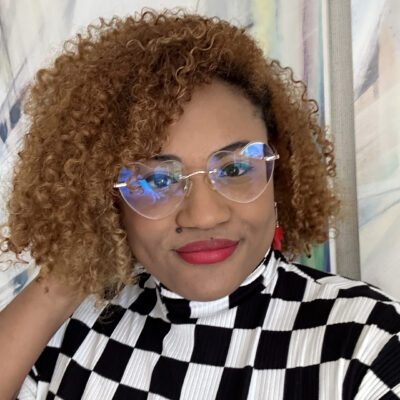
Jamila
Jamila, a resident of North Carolina, lives with chronic migraine, celiac disease, Sjögren’s syndrome, fatigue, anxiety, and depression.
How does ChronicHue help you?
“ChronicHue has helped me find a chronically ill community of people of color that I needed in my life. It has been a light in my life to talk to people who ‘get it’ and share advice specific to our community.”
Why are groups like this important?
“Black and Brown folks, especially women, have significantly poorer experiences with doctors, which all too often is a risk to our lives. Connecting with others helps us widen our community and allows us to share resources, advice, and an empathic ear more easily. It also helps bring more awareness to the bias and bigotry we receive from the health care industry.”

Shruti
Shruti, a resident of Canada, lives with migraine, anxiety, and depression. She did not receive a diagnosis until the age of 13.
How does ChronicHue help you?
“Growing up in India, and eventually moving to North America, I never truly processed how unheard I felt regarding my chronic illness. ChronicHue provides a space where I am able to find support and be understood. It allows me to explore topics avoided in other settings, encouraging both self-reflection and the opportunity to learn from the experiences of others. This process has been a form of healing, offering a sense of validation and a way of reclaiming my power and shining a light on challenges while unlearning self-invalidation.”
Why are groups like this important?
“It helps to discuss cultural expectations, family dynamics, impact on relationships, lack of support, stigma, impact on career, finances, and navigating health care systems that may differ based on one’s background. This shared cultural understanding helps us feel less alone. Groups like ChronicHue can amplify voices and highlight disparities that BIPOC patients with chronic illnesses face. This can lead to advocacy and changes in the health care system.
Beyond physical health, these communities recognize that mental and emotional well-being are integral to managing chronic illness. They offer a safe space to process emotions, build coping mechanisms, and support overall mental health. We may be conditioned to not be as loud, or our experiences make use believe we do not have it half as bad or our pain tolerance is better than most. And so, we do not speak up, and we do not see others like us speaking up. These forums give us a chance to do exactly that.”
Do you know someone who might benefit from joining our monthly ChronicHue meetings? Sign up here.
Want to Get More Involved with Patient Advocacy?
If you’re interested in getting involved in BIPOC advocacy at GHLF, you can email Sarah here. Your voice in advocacy matters. The 50-State Network is the grassroots advocacy arm of CreakyJoints and the Global Healthy Living Foundation, comprised of patients with chronic illness who are trained as health care activists to proactively connect with local, state, and federal health policy stakeholders to share their perspective and influence change. If you want to effect change and make health care more affordable and accessible to patients with chronic illness, learn more here.
SUBSCRIBE TO GHLF
RELATED POST AND PAGES
_
Was this article helpful?
YesNo

